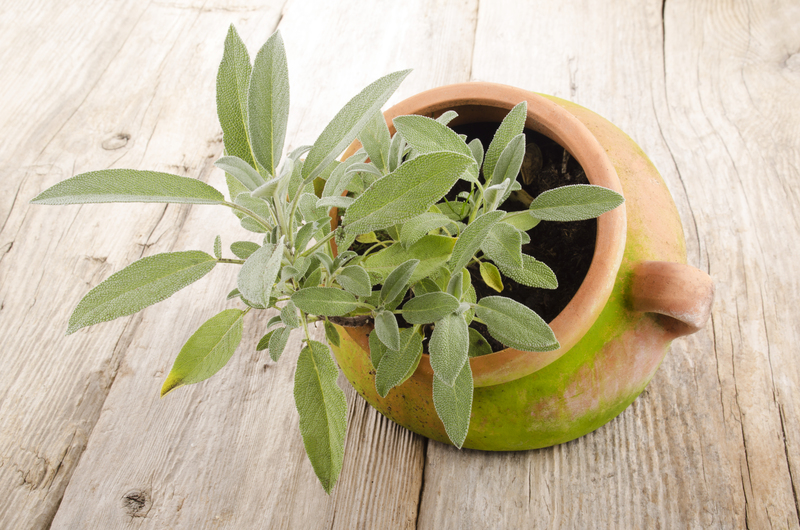Essential Gardening Skills: 9 Tips for Newcomers
Posted on 03/09/2025
Essential Gardening Skills: 9 Tips for Newcomers
Are you new to the world of gardening? Whether you're dreaming of a lush vegetable patch, vibrant flower beds, or simply looking to get your hands dirty and enjoy the outdoors, developing essential gardening skills is the first step to success. Gardening may seem overwhelming at first, but with the right tips and knowledge, anyone can grow a thriving garden. This comprehensive guide for beginners will provide you with nine practical gardening tips to kickstart your green journey. Let's dig in!
Why Learn Essential Gardening Skills?
Mastering gardening basics allows you to nurture healthy plants, produce homegrown vegetables, and create a space that brings year-round beauty and satisfaction. The benefits of gardening extend beyond your yard; gardening can reduce stress, improve mental health, and even encourage outdoor physical activity. By learning practical gardening skills, newcomers can avoid common mistakes and unlock the joys of this rewarding hobby.

Tip 1: Understand Your Garden's Environment
Knowing your garden's site conditions is the cornerstone of successful gardening. Every plot of land is unique, with its own microclimate, sunlight exposure, and soil composition.
- Sunlight: Observe how much sun your garden gets daily. Some plants need full sun while others prefer shade.
- Soil Type: Is your soil sandy, clay, or loamy? Use simple soil tests or home kits to find out. Good soil is the foundation of a thriving garden.
- Drainage: Ensure your garden doesn't collect water after rain; poorly-draining soil can harm roots.
Pro Tip: Keep a gardening journal to record your garden's sunlight patterns, soil type, and rainfall. This information will help you choose the right plants for your specific conditions.
Tip 2: Choose Suitable Plants for Beginners
One of the most essential gardening skills is plant selection. For new gardeners, it's easy to fall for exotic or high-maintenance plants. Instead, start with resilient and beginner-friendly species that suit your region's climate.
- Native plants are adapted to your local weather and soil, needing less care.
- Look for herbs such as basil, parsley, and mint, or vegetables like lettuce, radishes, and tomatoes.
- Marigolds, zinnias, and sunflowers are easy-to-grow flowers that add color and attract pollinators.
Check your USDA hardiness zone or local gardening guides to find out which plants grow best in your area. Grow with confidence by starting simple!
Tip 3: Master the Art of Watering
Watering is a basic but critical gardening skill. Both overwatering and underwatering can damage your plants.
- Water early in the morning to reduce evaporation and prevent fungal diseases.
- Check soil moisture by inserting your finger--if it feels dry an inch below the surface, it's time to water.
- Aim for deep, infrequent soaks rather than light, frequent sprinkles. This encourages strong root growth.
Reminder: Different seasons, plant types, and soil conditions affect watering needs. Adjust accordingly!
Tip 4: Learn Proper Planting Techniques
Planting may seem straightforward, but the way you plant seeds or seedlings greatly affects their growth. Plant at the right depth--too deep or too shallow can stunt development.
- Seeds: Follow packet instructions for specific depth and spacing.
- Seedlings: Gently loosen roots and plant at the same depth as in the nursery pot.
Press soil firmly but gently around each plant to eliminate air pockets and provide support. Finish by watering thoroughly to settle the soil.
Tip 5: Feed Your Garden Regularly
Just like people, plants need proper nutrition to thrive. Understanding when and how to fertilize is an indispensable gardening skill for new gardeners.
- Compost adds organic matter and nutrients to the soil. Consider starting a compost bin at home.
- Organic fertilizers are gentle and improve soil structure. Use sparingly--too much fertilizer can burn plants.
- Mulching helps retain moisture, suppress weeds, and add nutrients as it decomposes.
Building healthy soil is a long-term investment that yields amazing results in your garden.
Tip 6: Identify and Manage Garden Pests and Diseases
Dealing with pests and diseases is a reality for every gardener. Developing skills to identify, prevent, and treat these problems is essential for protecting your garden.
- Regular Inspections: Walk through your garden often to spot unhealthy leaves or pest damage.
- Encourage natural predators like ladybugs and birds by planting diverse species.
- Use organic remedies such as neem oil, insecticidal soap, or homemade sprays for minor infestations.
If you spot a problem, act quickly and research solutions. Early intervention prevents pests from spreading.
Tip 7: Pruning and Deadheading Basics
Pruning isn't just for looks--it encourages healthy growth and more blooms. Deadheading (removing spent flowers) redirects a plant's energy into making more blossoms instead of seeds.
- Use sharp, clean tools to prevent plant damage and disease spread.
- Prune at the right time; many plants have specific seasons for major trimming.
- Remove dead or diseased wood to improve air circulation and plant health.
Proper pruning is an essential gardening skill that may feel intimidating but becomes easier with experience.
Tip 8: Stay Organized and Plan Ahead
Planning is key for a successful garden. A little organization helps you make the most of your space and prevents crowded or mismatched plantings.
- Keep a gardening calendar or journal. Record planting dates, weather patterns, and harvest times.
- Design your beds with companion planting in mind; some plants help each other grow or deter pests.
- Rotate crops each year to reduce soil depletion and hinder the buildup of pests.
Planning ahead saves time, reduces mistakes, and results in a healthier, more productive garden.
Tip 9: Never Stop Learning and Enjoy the Process
Like any skill, gardening takes time to master. Even experienced gardeners make mistakes. The secret to ongoing progress is a willingness to learn, experiment, and occasionally fail.
- Read gardening books, blogs, and magazines for new ideas and practical advice.
- Join local garden clubs or online groups to connect with other enthusiasts and share experiences.
- Observe your garden closely; every season and every plant teaches you something new.
Embrace the journey! Gardeners who enjoy the process, celebrate small victories, and learn from setbacks grow not just plants, but character.

Frequently Asked Questions About Gardening Skills
What are the most crucial gardening skills for beginners?
Beginners should focus on understanding their local environment, choosing easy-to-grow plants, proper watering, and consistent garden observation. Building soil health and recognizing pests early goes a long way to a successful garden.
How can I avoid common gardening mistakes?
Start small, do your research, and don't be afraid to ask for advice. Most importantly, learn from your own and others' mistakes. Keeping a journal helps track what works and what doesn't in your unique space.
Is it better to start with seeds or seedlings?
Both options are great for beginners, but starting with seedlings is often easier and provides faster results. Seeds are more affordable and offer more variety, but they require more patience and care, especially during the early stages.
Conclusion: Growing Your Confidence With Basic Gardening Skills
Embarking on your gardening adventure can feel daunting, but practice and patience go a long way. By mastering these essential gardening skills--from knowing your environment and watering properly to pruning and planning--you'll cultivate not just a beautiful outdoor space, but also your own expertise and enjoyment.
- Start small and choose beginner-friendly plants
- Regularly observe, water, and nurture your garden
- Enjoy the process and keep learning!
Whether you're planting your very first seed or tending to a flourishing bed, remember: every great gardener started as a newcomer. With these nine essential gardening tips, you're well on your way to creating a vibrant, sustainable, and beautiful garden. Happy gardening!
Latest Posts
Enhancing Urban Landscapes with Vertical Gardening
Stretch Your Budget with These Low Maintenance Garden Tips
Adapting gardening techniques with containers



